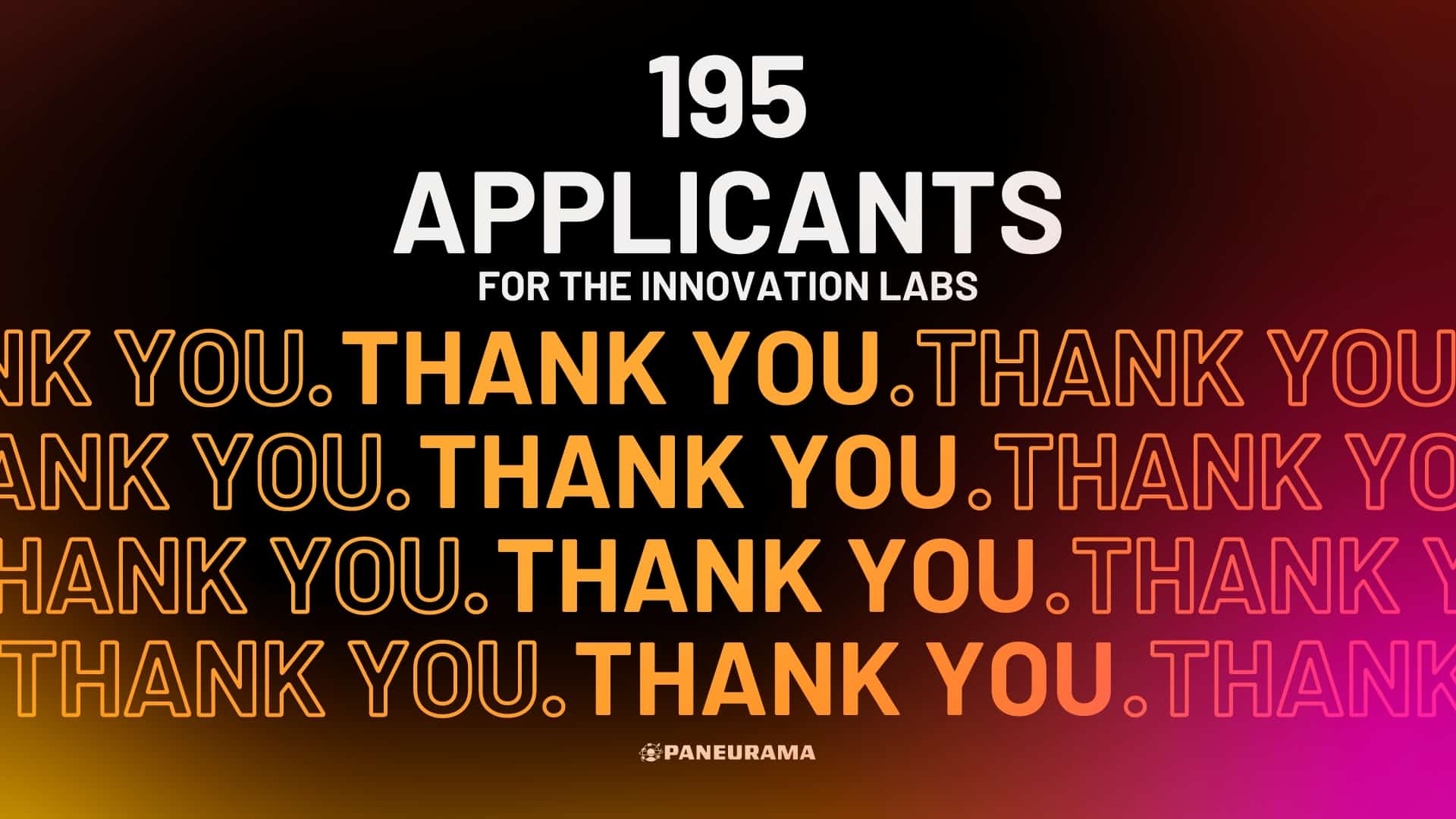We asked our team from the PANEURAMA project to briefly introduce themselves, share the areas they are working on, and respond to some questions addressing current challenges and opportunities in the industry.
We hope you will enjoy reading their insights. The interviewee Nikoline Bangen from Qvisten Animation

Nikoline Bangen
Production Manager
@Qvisten Animation
Q: Can you provide a brief overview of yourself, the industry you work in, and your professional experience?
I have worked in animation for 6 years, and in marketing and commercials for about 10 years. That is the area of Animation I currently work in – animated commercials, content, immersive experiences, AR, VR, and similar. I am a project manager/lead, and I have also worked as head of production for animation in a previous job.
At Qvisten we are aiming for a full 360 production, offering feature and short films as well as commercials, VR, AR, games, interactive systems, education, character development, creation and design, and attractions – and we are continuously developing and growing with the market.
I have a bachelor’s in psychology, and my work experience is mainly in film and animation production, as well as radio, sales, and commercial/ad agencies. I am also an actress.
Q: In recent years, what do you consider the most significant changes within your industry? How does it affect you or your company? Could you give some examples?
- Major development in technique and the software used for creating 3D and animation. Gaming engines like Unreal and Unity are two big ones that come to mind — and personally, I find them very exciting.
- A decrease in the global economy has had a major impact on the will to invest in production.
- A lot of companies now have their own in-house creative department, making it more challenging to pitch commercial projects to companies.
- Viewer habits are changing — after TikTok became a thing, shorter viewing times than ever before.
- More and more want 3D, and also 3D on more and more platforms.
- Bite-sized entertainment is very popular.
Q: What, in your opinion, are the primary challenges currently faced by the industry?
- The will to invest due to the world economy is quite tight at the moment, and there is a lot of pressure to make high-quality products/productions for less and less money.
- The introduction of AI tools lets everybody create their own stuff, which results in fewer jobs for the studios.
- The copyright of AI work.
Q: Could you please identify the most significant opportunities within the industry?
- Continuous development and innovation within the field — new techniques and styles.
- 360 mindset: Films, games, VR, experiences, rides, TV series, creating a universe.
- Coproductions and cross-country productions.
- AI: Making workflows more efficient.
Amusement Parks and immersive spaces are growing. - Metaverse and other new platforms for content.
Q: What do you think are the most important hard skills in your industry?
There are many different positions in the production of animated films, games, experiences, and commercials that all require different hard skills. Understanding and mastering AI and all the new techniques and software on the market will be a big one.
You can be a production manager where budget, time management, and a basic understanding of the production pipeline is important, or you can be an animator, 3D generalist, modeler, rigger, comper, director, producer, editor — the hard skills required will vary depending on the job.
Knowledge of programs such as Maya, Houdini, Unreal, Unity, After Effects, Photoshop, Blender, etc. is important. General technical knowledge in programs such as Excel, word, WordPress, Google Drive, PowerPoint, etc. are also important.
Many companies will have their own systems and programs that they use as well, so you will need to be able to adapt to these — whether that is pipeline, storage, logging of hours, or other things.
Q: What recommendations would you offer to educational institutions to foster closer collaboration with the industry? Could you share some examples?
- Most important: Internships/work placements with real projects.
- Have more lectures with guest lecturers from the industry.
- Visit selected workplaces/collaborate with workplaces relevant to their study.
- Conventions.
- Own platforms to showcase the student’s work where workplaces can go in and view them.
- Work exchange.
- Study tours.
Q: As an industry representative, what do you think companies should focus more on to better prepare young artists for their careers?
- Visibility.
- Being open about company culture, showing what it is like to work there.
- Internships with a focus on practical experience with real projects.
- Open days for students
- Appearing as guest lecturers in schools.
Q: What do you think are the most important soft skills in the industry, and could you give some advice on how to develop them?
Again, it depends on the jobs/roles you want. Some basics are time management, problem-solving, working well in teams, and good listening skills.
Q: Could you provide suggestions or recommendations for students and graduates aiming to succeed in the current market?
Build a good showreel/portfolio focusing on your desired field of work (animator, 3D generalist, unreal, modeler, rigger, compositor, light/render, pipeline, programmer, etc.), and don’t get locked into software that might be dated soon, or if you want to be a project manager/similar.
Work experience and a good resume are important to get some work experience in managing projects, teams, or similar. Work in film productions as a production assistant for instance.
Experiment with all sorts of programs and figure out what works best for you. Aim to bring new things to the table.
Become an expert in your field through training and education as well as work experience.
And of course:
- Be curious.
- Be the kind of person people want to keep working with over and over.
- Work well in teams but also be capable of taking initiative for yourself.
- Learn how to give and receive feedback.
- Network and don’t be afraid of putting yourself out there.

